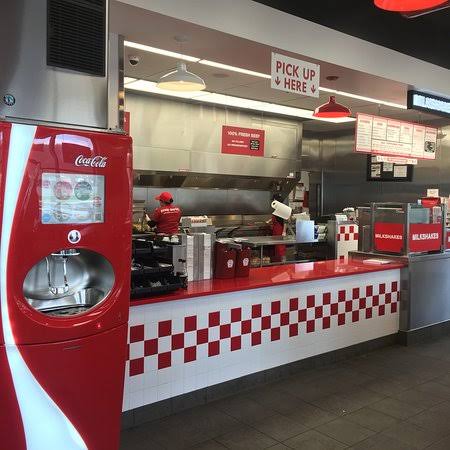Introduction
Veterans Affairs (VA) loans offer numerous benefits for veterans, active duty service members, and eligible surviving spouses who are looking to buy, build, or improve a home. But can you use these loans to invest in real estate? The answer isn’t quite straightforward, but this post aims to shed light on the ins and outs of using VA loans for investment properties.
Thank you for reading this post, don't forget to subscribe!A Brief Overview of VA Loans
VA loans are a beneficial product of a program orchestrated by the U.S. Department of Veterans Affairs, specifically engineered to aid veterans in their journey towards homeownership. These loans are attractive because of their many advantages such as requiring no down payment, offering competitive interest rates, waiving the need for private mortgage insurance (PMI), and providing more relaxed credit requirements. While they are customarily utilized for primary residences, this doesn’t necessarily restrict them from being leveraged for investment properties. This article will unravel the intricacies of navigating this particular aspect of VA loans.
The Misconception About VA Loans and Investment Properties
It’s a common fallacy that VA loans are off-limits for investment properties. While their primary aim is indeed to assist veterans in acquiring their primary residences, this doesn’t paint the whole picture. With a clever strategy and a keen understanding of the rules, these loans can serve as a useful tool for investors. The trick lies in exploiting the potential loopholes and exceptions. So, if you’re a veteran or active service member with an eye for real estate, don’t be deterred by this widespread myth. Instead, delve into the specifics, and you could unlock a new, lucrative avenue for growing your wealth.
The Primary Residence Rule for VA Loans
One of the central tenets of VA loans is the stipulation that the recipient of the loan must inhabit the property as their main residence. At face value, this rule may seem to categorically exclude VA loans from being used for investment properties. However, understanding the subtleties and nuances of this rule reveals there’s a bit more wiggle room than initially meets the eye. Fundamentally, while VA loans can’t be used explicitly for investment properties, they can indeed be employed in ways that generate income. The crux of the matter resides in the nature of the property purchased and the method in which it is utilized. Keep reading as we delve deeper into these concepts and show how it’s possible to satisfy the primary residence condition while also generating income from your VA loan-financed property.
Using Multi-Unit Properties to Your Advantage
Ever wondered about a way around the VA loan’s primary residence stipulation? Well, investing in multi-unit properties might just be your answer. When you think ‘investment’, the typical single-family rental property might spring to mind. However, with a VA loan, the game plan is slightly different. By purchasing multi-family properties, you might just have found your loophole.
How does this work? Simple! VA loans permit the purchase of properties with up to four units. You, as the borrower, must live in one of these units as your primary residence, which satisfies the VA’s main requirement. But the real magic lies in the other units. You’re free to rent them out, making them a source of rental income and transforming your primary residence into an investment property simultaneously.
So, consider taking a detour from the typical real estate investment path. Look for duplexes, triplexes, or even fourplexes, as these can pave the way to becoming a real estate investor while still adhering to the VA loan rules. This strategy ingeniously aligns with both the VA’s requirements and your investment ambitions, making it an exceptional opportunity for veterans and active service members to expand their financial horizons.
Refinancing with a VA Loan for Investment Purposes
Refinancing might just be your hidden ace when considering using a VA loan to fuel your investment ambitions. Particularly if your home has accrued substantial equity over time, a VA Cash-Out Refinance Loan can serve as an unexpected gateway into the world of real estate investing. The beauty of this strategy is that it allows you to tap into the value of your home to get cash, which you can then channel into securing an investment property. Imagine that: transforming your home’s accumulated equity into a burgeoning real estate portfolio! It’s vital to note, however, that refinancing comes with its own set of specifics, so do your due diligence or consult with a professional before diving in. Nevertheless, it certainly presents another creative and potentially lucrative angle to use VA loans for investment purposes. So why not explore this route? After all, the world of real estate investing thrives on innovative strategies.
The Importance of Understanding VA Loan Limitations
As much as VA loans are a boon for veterans and active service members, it’s essential to be aware of certain limitations associated with them. For starters, these loans cannot be utilized for securing vacation homes or properties intended for commercial use. This underscores the importance of meticulously selecting the right property that aligns with the VA loan’s stipulations. Also, be prepared for a funding fee that accompanies your VA loan. This fee is a necessary trade-off for the many benefits these loans offer, such as no down payment and no PMI.
Another critical aspect to consider is the loan limits set by the VA. While these loans are generous, they aren’t unlimited. Therefore, understanding how much you can borrow is crucial in shaping your real estate investment plans.
Multi-unit properties may seem like the perfect workaround to simultaneously meet the primary residence requirement and generate rental income. However, keep in mind that not all multi-unit properties are eligible for VA loans. The property must meet specific VA standards and lenders might have additional rules to adhere to.
Understanding these nuances and restrictions associated with VA loans can help you avoid potential roadblocks in your real estate investment journey. As you navigate this path, remember that each investment strategy comes with its own set of complexities. By understanding the limitations of VA loans, you’re better equipped to make informed decisions that suit your unique investment goals and aspirations.
Seeking Professional Advice for Your Investment Strategy
Navigating the world of VA loans for investment purposes may seem like a daunting endeavor. But, worry not! With the right guidance, it can become an effective and profitable strategy. This is where professional advice plays an indispensable role. A qualified real estate professional, well-versed in the VA loan process, can offer valuable insights to tailor a plan that aligns with your investment goals. Additionally, a tax expert can illuminate potential tax implications related to your investments, guiding you towards optimal financial decisions. Finally, a VA loan specialist can become your guiding star in the borrowing process, helping you understand the loan’s nuances, restrictions, and opportunities. By enlisting the help of these experts, you can confidently stride forward on your journey to using VA loans for investment properties. Remember, investing is not just about recognizing opportunities, but also about understanding the complexities. And that’s precisely where professional advice comes in handy.



